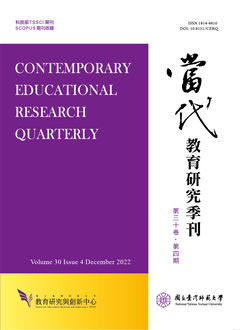

This paper presents a critique-of-humanism reading of The Theory of Educational Technology (2023) by Rupert Wegerif and Louis Major, drawing on Paul B. Preciado’s biopolitics and Jacques Derrida’s hauntology. It explores how Wegerif and Major address the concept of future humans and their interaction with social structures, their use of Heidegger’s Techné to frame technological engagement, and the knottiness of bio-socio-technical systems and agency. The paper also evaluates their proposed framework for designing educational technologies that foster productive dialogue. While this analysis serves as a book review in educational technology and dialogic space, it also offers a commentary for those interested in posthumanist analysis approaches.

本著作係採用創用 CC 姓名標示-非商業性 3.0 台灣 授權條款授權.
本刊國立台灣師範大學教育研究與創新中心
106台北市和平東路一段162號 | 電話: 02-7749-3670 | E-mail: cerecerq@gmail.com
教創中心 | 師大 | 電子報 | 線上投審系統
本刊由國家科學及技術委員會人文社會科學研究中心補助經費
© 2014 CERI-NTNU
